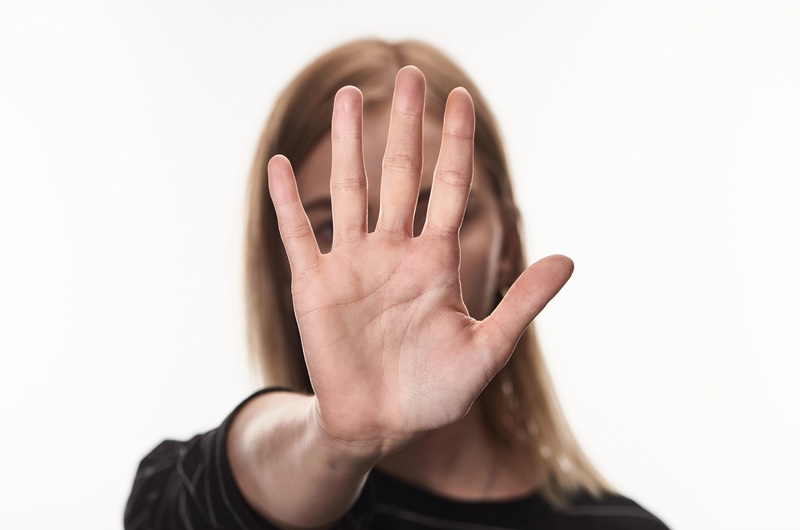How Long Does It Take For VAWA Processing?
VAWA, or the Violence Against Women Act, plays a vital role in supporting domestic abuse victims. Through this act, individuals who meet certain criteria can submit a self-petition to pursue legal status in the United States.
However, there remains a need for clarity regarding the processing time for these applications. Hence, this article aims to delve into the various factors that influence the length of the processing period. It can shed light on what applicants can anticipate and provide guidance on navigating the process more effectively.
Numerous elements contribute to the timeline of VAWA application processing. Factors such as the complexity of the case, availability of supporting documentation, and workload of the immigration authorities all play significant roles. Understanding these aspects can help applicants manage their expectations and take appropriate measures to streamline their applications.

The VAWA Self-Petition Process
Understanding the standard procedure is the essential first step. Victims of sexual assault, domestic abuse, and other types of violence against women have legal recourse through the process. They will have a better chance of getting the help they need and avoiding further legal trouble if they know the standard procedures.
The usual phases in the process include the following.
- Submitting Form I-360, the self-petition for victims of abuse.
- Take a biometrics appointment for background checks.
- Have USCIS thoroughly analyze the application.
- Get a decision of approval, denial, or request for additional evidence.
Obtaining help from an immigration lawyer throughout the investigation phase is crucial. The victims will be able to reclaim their life with their assistance. A skilled legal representative can also assist people in taking the first step to end the cycle of violence.
Key Documents & Evidence
Submitting the necessary paperwork and evidence when filing a self-petition under the Violence Against Women Act is essential. The following are examples of the most frequently requested proof and documents.
Formal Form
The formal form is the Petition for Alien of Asian Descent, Widow(er), Special Immigrant, or Form I-360.
Relationship Validity Verification
If you are filing as a U.S. citizen or LPR spouse, you must present documentation of your marriage. Similarly, to file as a minor, you must provide evidence that you are the child of an American citizen or a lawful permanent resident. And to qualify as a parent, you must prove that you have a son or daughter of U.S. nationality and is at least 21 years old.
Proof Of Abuse Via Documents
Abuse or extreme cruelty requires documentation. It may include police reports, restraining orders, medical records, or images of injuries that attest to the presence of a qualifying abusive relationship. In addition, statements under oath from anybody with firsthand knowledge of the alleged abuse may be necessary. It may consist of the victim or other family members or friends.
A Personal Statement
A thorough personal statement is essential. You must outline the nature of the abusive relationship. In addition, state the specific incidences of abuse and its effects on you and your children.
Indicators Of Good Moral Character
Evidence that you always stayed with ethical behaviors while in the U.S. is vital. The qualifying documents for various purposes include reference letters, tax returns, academic transcripts, and employment letters.
Supporting Documents
Additional proof supporting the claim may include letters from therapists, social workers, or other professionals. Statements from people who have worked with you to verify the abuse and its effects are essential. Also, any further document that helps to bolster your claim can be advantageous.
Remember, the above requirements are broad guidelines, and the precise forms of evidence will depend on your unique situation. If you want to be sure you include everything you need to support your VAWA self-petition, consulting with an immigration attorney is essential.
General Timeline For Self-Petition
Although application processing dates can vary, it is helpful to understand the general timeline. Filing is the first stage in the process.
Self-Petition requires an applicant to complete the necessary information on Form I-360. Within a few weeks of submission, USCIS will send a receipt notice verifying the application has been received.
After receiving the notice, the department will arrange the applicant’s fingerprint and biometric appointment. It’s crucial for conducting background checks and usually takes place a few months after the first filing. Next, they will examine the application.
Depending on intricacy and work, this step may take a year. After considering the application, the immigration services will either approve, deny, or send a request for additional information.
The application process continues after the applicant receives notification of acceptance. Meanwhile, a rejected application can be appealed or resubmitted. The petitioner must reply within the time frame if USCIS issues an additional evidence request (RFE).
Factors Affecting The Processing Time
A VAWA application’s turnaround time may vary. Several factors determine it. Therefore, to have reasonable expectations, it is crucial to grasp the following:
- The degree of difficulty in any given case depends on several elements. It includes the nature of the abuse, the availability of evidence, and any attempts at cooperation with authorities. Complex issues may require more time to review.
- United States Citizenship and Immigration Services (USCIS) processes VAWA applications. Processing times may increase or decrease depending on USCIS’s current workload. Delays are possible when demand is great or when resources are scarce.
- If USCIS needs more information (Requests for Evidence (RFEs) and extra paperwork), it may take longer to process your application. Therefore, it is essential to respond quickly and thoroughly to avoid excessive delays.
- Eligibility for benefits is determined in part by the results of a background check. The time needed to get approval from these inspections and the number of government entities involved can vary widely.
How To Navigate The Process Efficiently
 VAWA applications have uncertain processing times. However, there are ways to hasten the process. The first is consulting a lawyer.
VAWA applications have uncertain processing times. However, there are ways to hasten the process. The first is consulting a lawyer.
Hiring an experienced immigration lawyer can be helpful during the application procedure. They can help you submit a complete and accurate application, reply quickly to any inquiries from USCIS, and fight for your rights.
It is critical to gather convincing proof of abuse. Evidence might include police reports, medical records, witness statements, and images. The greater the weight of the evidence, the more likely your application will be approved.
Therefore, ensuring that all necessary and helpful proof must be present immediately is crucial. Maintain an orderly file containing copies of all application materials.
The process of obtaining relief under the VAWA may be time-consuming. It is imperative to maintain composure and persevere. To mitigate potential delays, monitor the USCIS website for modifications to processing times. More importantly, a conversation with your legal counsel can prove advantageous if any pertinent matters weigh on your thoughts.
Hire An Experienced Immigration Lawyer
An attorney for immigration can play a role in assisting victims of domestic violence seeking protection through the Violence Against Women Act (VAWA) processing. Their competence can streamline the complex application process and provide much-needed support to survivors.
A lawyer’s specific jobs include evaluating eligibility, gathering evidence, preparing affidavits, and filing the VAWA petition with USCIS. They also ensure the application meets all requirements, avoiding potential delays or denials.
Step-by-step guidance involves educating clients about the process, assisting in obtaining necessary documents, and representing them throughout the proceedings. By offering legal advice and compassion, VAWA lawyers enhance the chances of success for applicants. They provide them a path to safety and stability in the United States.
Several factors affect how long it takes to resolve an immigration-related case. On average, the time it takes to complete processing is between six and twelve months.
In addition, this timeframe is simply an estimate, and the actual processing time may vary depending on the specifics of your situation. Factors that affect the processing may include the intricacy of the case, the USCIS’s current caseload, and any requests for further documentation or interviews.
Immigration-related applications prioritize VAWA cases so victims of violence and other crimes against women can get the help they need. But, there may still be a delay if more time is required to examine and confirm the supporting information’s validity carefully.
Filing a petition with all required documentation and evidence is critical. It helps guarantee a smooth procedure. Survivors stay patient and persistent throughout the process with the help of competent legal counsel and advocacy groups. Hiring a qualified attorney who focuses on VAWA claims is crucial.
It helps to move towards giving survivors agency and securing justice for victims of violence. A skilled VAWA attorney has the experience, knowledge, and empathy to help survivors through the complicated legal system. They can get legal advice, emotional support, and access to the necessary resources to reconstruct their lives.
In addition, working with an experienced legal representative is crucial. This ensures that survivors’ needs are put first and equips them with the resources they require to go forward.
Contact A U.S. Immigration Attorney Today!
Categories
How To Find Us
What Our Clients Say
“This Lawfirm is great, very professional and helpful. I love that they are always in communication and always available for when you have questions . 100% recommended by me and my family. Thank you Lincoln-Goldfinch Law – Abogados de Inmigración”





